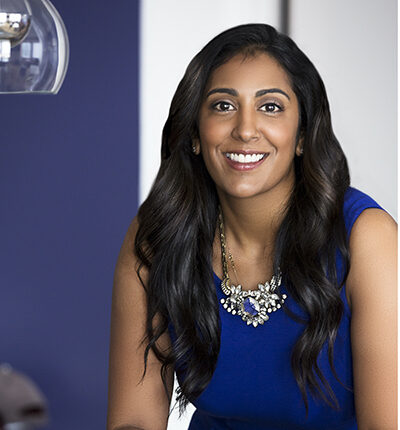Periods Are Under Attack in America
New legislation in the U.S. is designed to persecute women for managing their reproductive health. But the "Don't Say Period" bill just proposed in Florida is the most dangerous yet.


For the past 15 years, my team and I have worked for menstrual equity in rural India. We’ve seen the damage and danger that can be done to the mental and physical health, education, livelihood, and dignity of menstruators when they aren't armed with the right information and tools to manage their periods. We break the cycle of stigmas around periods with our award-winning Asani Sanitary Napkin Program, which trains women in India to manufacture and distribute quality sanitary napkins throughout their communities. But recently, there have been so many attacks on menstrual equity right here in the United States.
It all started in October 2022, when, under the guise of health, a Florida coach was trying to compel his student athletes to report their menstrual cycles. But in a state where abortions are illegal, this could lead to non-medical professionals making assumptions about a woman's reproductive health. In February, we saw the introduction of a bill in Virginia trying to force tech companies to allow menstrual data to be subpoenaed. Both measures are reckless for so many reasons, but at the core, these laws violate the fifth amendment rights for bleeders; its authors and supporters are forcing women to incriminate themselves in states where abortion is illegal. There are several other bills of similar design that specifically focus on menstruation in order to control women.
But the bill that Stan McClain, a Republican representative from Florida, proposed (Bill 1069) last week is equally, if not more, dangerous. The “Don’t Say Period” bill restricts children below the sixth grade from talking about their periods in school. The proposal does not use the words period or menstruation but when Democratic Representative Ashley Gantt asked if the bill would prohibit girls from having conversations about menstrual cycles, McClain responded: “It would.”
These laws are designed to entrap women into not knowing about their menstrual health, or to persecute them for managing their own reproductive health.
McClain's bill is trying to restrict a child’s first amendment right to talk about a biological process that allows humans to procreate. The average age of menstruation in the United States begins at 12, which means many girls get their periods as young as nine. Are they not going to be allowed to speak to their school nurse, or each other, when they start bleeding? Are they going to prohibit students from sharing menstrual products?
I am equally worried about how such a law is enforced. Are they going to put students on the stand to gossip and report on their classmates? Are we going to fine, fire, or imprison school nurses for talking about periods? Are we going to suspend or expel young children from school—disrupting their education—for this?
McClain's prohibitive law is even more dangerous than the menstrual data laws that precede it, because legislation that silences women can have lifelong consequences. We see first hand how period poverty affects girls in India, who are also forced into silence around menstruation.
We need to talk about menstruation more, not less. “Fluency in the menstrual cycle is not only an essential matter of personal health and hygiene, but in our post-Roe society, such knowledge rises to the highest levels of political urgency,” says Jennifer Weiss-Wolf, author of Periods Gone Public.
Stay In The Know
Get exclusive access to fashion and beauty trends, hot-off-the-press celebrity news, and more.
These laws all come from one place: in a Post-Roe America, there are GOP lawmakers trying to control women’s bodies, their autonomy, and their health. They are packaging these laws as tools for better "parental control" and improving the health of women. But actually, these laws are designed to entrap women into not knowing about their menstrual health, or to persecute them for managing their own reproductive health.
We can’t keep letting periods hold women back at school, at work, and in society.
The stigma and misinformation starts with our politicians not seeming to understand how early girls get their periods, how cycles can be highly erratic in their teens, or even how periods are used to calculate weeks of pregnancy. In addition, many students drop out of sports when they begin menstruating and many report missing days of school because of period-related issues. They experience extreme shame around PMS, period stains, exposing period products at school, and not being able to afford pads, tampons and other products. This can lead to mental and reproductive health issues if they don’t feel comfortable speaking about irregularities in their cycles. Many are still led to believe that they will be attacked by sharks if they enter the ocean while bleeding.
But our menstrual cycle is a huge indicator of our overall health. And if we are teaching young people to stay silent about it, we are setting them up for a lifetime of silence around conditions like endometriosis, PCOS, malnutrition, and beyond. Rhetoric in pop-culture through TV, movies, and the news can also have an effect on young bleeders. We have just begun to make progress around discussing women’s health around menstruation, thanks to the promotion of period management tools, like period underwear, menstrual cups, etc. But we are basically shoving all this progress back in the closet, putting the mental and physical health of young girls at risk again.
Florida Governor Ron DeSantis, a Republican, is expected to sign "Don't Say Period," along with a suite of other bills seeking to overhaul the state’s education system, similar to the "Don’t Say Gay" law passed just last year.
We need everyone in this country to stand firm against laws that prevent our young people from learning about their bodies. Regardless if you are for or against Roe, regardless if you are a Republican or a Democrat, we can all agree that we should not be policing what students are talking about in school, especially if they are talking about something natural, biological, and healthy.
Ways to Support Menstrual Equity and Education
We can’t keep letting periods hold women back at school, at work, and in society. It’s time to move forward, and allow girls to thrive with the information, conversation, privacy, and dignity they deserve. Here’s how we can take action.
- Join the Desai Foundation this year in the Pledge Your Period campaign in the month of May to celebrate Menstrual Equity Month to break the stigmas around menstruation. www.pledgeyourperiod.com
- Use your voice and call your local school board. Only 17 states currently require medically accurate sex education, and ensure that students can speak freely about learning about their bodies.
- Create, join, or support safe spaces where people feel comfortable sharing their stories, challenges, and celebrate their periods—be it through books, art, social media, or educational discussions and forums.
- Donate to organizations fighting for menstrual equity, like The Desai Foundation, The Pad Project, and Period.org

Megha is a menstrual health advocate and the President of the Desai Foundation, a public programmatic NGO which empowers women and children through community programming to elevate health, livelihood and menstrual equity in rural India.
-
 Timothée Chalamet’s Mom Just Spoke Out About His Relationship with Kylie Jenner
Timothée Chalamet’s Mom Just Spoke Out About His Relationship with Kylie JennerIn an interview about her real estate career? Sure!
By Lia Beck
-
 Two Weeks Into Dog Parenthood, Sydney Sweeney's Dressing the Part
Two Weeks Into Dog Parenthood, Sydney Sweeney's Dressing the PartDenim shorts on deck.
By Kelsey Stiegman
-
 How Princess Kate and Prince William are Following in The King and Queen's Footsteps With Surprise Anniversary Celebration
How Princess Kate and Prince William are Following in The King and Queen's Footsteps With Surprise Anniversary CelebrationThe Prince and Princess of Wales will mark their 14th anniversary on April 29.
By Kristin Contino